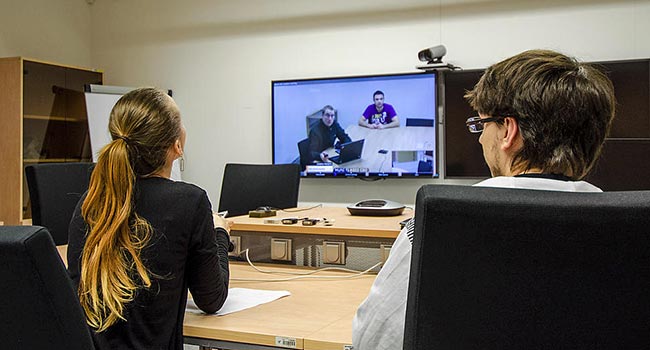Computer Networks and Communication – Field of study catalogue MU
Computer Networks and Communication |
Expand all the items
This study programme provides basic knowledge in architectures, principles of operation and management of computer networks. The study programme gives an opportunity to take a theoretical or more practically oriented passage through the three-year study. Graduates from the practically oriented passage will have basic knowledge about functional principles of operating systems, will have an overview in the security areas corresponding to computer systems and networks, and, notably, will have appropriate knowledge about theoretical principles as well as practical experience of computer networks, their functions and operation. Graduates from the theoretically oriented passage will understand the theoretical foundations behind the computer networks principles, and this understanding will be complemented by appropriate knowledge of their actual functioning.
(?)
After successfully completing his/her studies the graduate is able to:
- understand basic principles and architecture of IP networks;
- analyze and design simple computer networks;
- understand basic network protocols (esp. TCP), understand basic behavior of IP computer networks;
- understand basic routing and switching principles and algorithms;
- manage simple IP networks.
(?)
Graduates from both orientations will be able to work immediately as computer network administrators or designers of small area networks, Eventually, they could work as security advisers or administrators. The studies will also prepare the graduates to continue at a master level either in computer networks and communications or in any other related computer science field, most prominently targeted to computer or information systems or to security. The graduates from the theoretically oriented study option are expected to continue with Master's studies, whereas the practically oriented option is preparing students not only for further studies but gives them enough experience to become valuable professionals.
(?)
Standard duration of studies is six semesters. In order to be admitted to take the final state examination, students must acquire in total 180 ECTS credits for required, selective and elective courses. Required subjects constitute the basis of the disciplines. Students choose the selective courses according to their interests and intended professional specialisation. During the course of their studies, students should follow the course catalogue for their year of matriculation. The catalogue shows a recommended course of study including suggestions for selective courses.
Students can access the course catalogue at the Office for Studies or through the faculty website: https://www.fi.muni.cz/katalog/.
(?)
The final state examination consists of a Bachelor's thesis defence and an oral exam aimed at checking the field-related knowledge of the students. Two questions are randomly drawn for each students before the oral exam. The student is allocated thirty minutes to answer these questions in writing. This written preparation is given to the committee and it constitutes a part of the official protocol about the final exam. Committee members are allowed to ask additional questions to the written preparation, and about other topics related to the drawn questions. The final state examination typically takes about thirty minutes, half of which is taken by the thesis defence and half by the oral exam.
More information about the final state exam and the questions can be found at the faculty website: https://www.fi.muni.cz/studies/szz_bc/.
(?)
After the completion of the Bachelor’s studies, students may choose to continue their studies in any Master’s degree programme. It is advisable to prepare for further studies field specifics by selecting wisely the elective courses during the Bachelor studies.
(?)
|
0
Students
|
169
|


